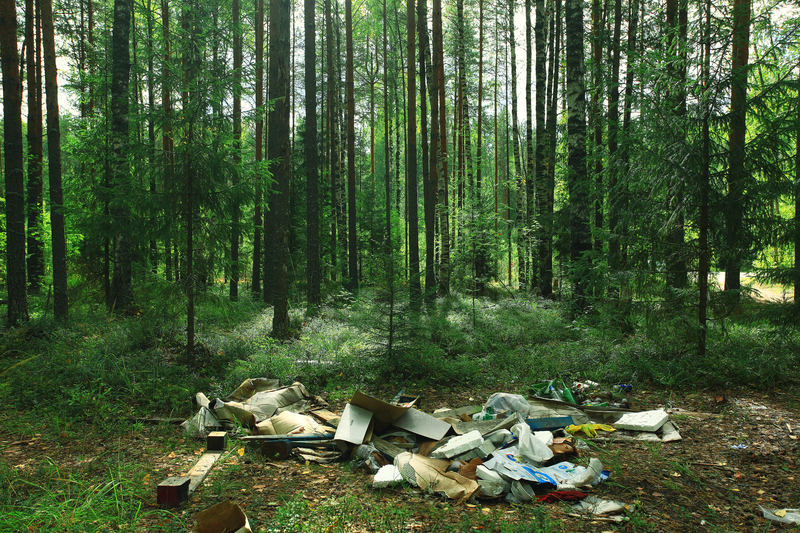Comprehensive Guide to Saving Money on Bulky Waste Disposal
Dealing with bulky waste disposal can often be a daunting and expensive task. Whether you're renovating your home, clearing out the attic, or dealing with old furniture and appliances, disposing of these large items correctly--and affordably--can seem like a major headache. But with the right strategies and information, you can save money on bulky waste disposal, protect the environment, and ensure compliance with local regulations. This in-depth guide will provide you with proven tips, tricks, and insights into cost-effective ways to manage and get rid of bulky waste.

What Is Considered Bulky Waste?
Before diving into how to lower bulky item disposal costs, it's important to understand exactly what falls under the category of bulky waste. Generally, bulky waste includes items too large for regular trash collection. Examples of bulky waste include:
- Furniture such as sofas, chairs, tables, mattresses, and wardrobes
- Appliances like fridges, freezers, washing machines, and ovens
- Electronic waste (e-waste) such as televisions, computers, and printers
- Bicycle frames, carpets, rugs, and large toys
- Garden waste including branches, old sheds, or fence panels
Why Is Bulky Waste Collection Expensive?
Bulky waste is often more costly to dispose of compared to standard household rubbish. The reasons include:
- Larger items require more storage space in collection vehicles and landfills.
- Special handling and manual labor are often necessary to move, load, and dismantle items.
- Some items, especially electronics, require special recycling or disposal methods.
- Local councils and waste management companies may charge extra for large or multiple items.
Top Money-Saving Strategies for Bulky Waste Disposal
1. Know Your Local Council Services
Many municipalities offer bulky item collection services. Check your local council's website for information about:
- Free or low-cost pickup days for bulky waste.
- Limits on the number or type of items collected per visit.
- Registered charity partnerships for reusable items.
2. Donate or Sell Usable Items
One of the most eco-friendly and cost-effective ways to get rid of bulky items is to donate or sell them. Options include:
- Charity shops: Many organizations will collect large furniture or appliances for free if they are in good condition.
- Online marketplaces: List items for free or at low prices on platforms like Facebook Marketplace, Craigslist, Gumtree, or Freecycle.
- Specialty recycling organizations: Some non-profits focus on rehoming electronics or upcycling materials.
3. Break Down Bulky Items Before Disposing
In many cases, large items like wardrobes, beds, or shelving can be carefully dismantled. Disassembling furniture and bundling materials reduces the space they take up, which can:
- Help you fit more into your vehicle or rental skip bin.
- Qualify your waste as smaller categories at recycling centers, saving on disposal fees.
- Make collection easier and accident-free for waste handlers.
4. Pool Resources with Neighbors or Friends
Are others in your building, street, or neighborhood also looking to clear out bulky items? Sharing the cost of a skip hire or booking a joint collection spreads the price, making it more affordable per person. Consider:
- Organizing a community clean-up weekend with shared disposal fees.
- Booking a multi-property pickup with a reputable local waste management company.
5. Compare Local Waste Disposal Companies
Private bulky waste removal services can vary in price. To get the best deal:
- Request quotes from multiple companies.
- Ask about minimum charges, per-item fees, or whole-load pricing.
- Read reviews and ensure they have the correct licenses for waste disposal.
6. Utilize Recycling Centers & Drop-Off Sites
Many local recycling centers accept a wide variety of bulky items for free or at a reduced cost. Here's how to maximize this option:
- Research which centers accept your specific items (appliances, mattresses, e-waste, etc.).
- Be sure to check opening hours and any access requirements (proof of residency, booking slots).
- Properly sort and load your items--some centers have limits or only accept waste by type.
7. Consider Renting a Skip for Larger Projects
If you're undertaking a significant home renovation, clean-out, or landscaping project, a skip (or dumpster) rental may be the most efficient choice. For maximum skip hire savings:
- Estimate your waste volume accurately to avoid overpaying for unused space.
- Compare prices from local and national skip providers.
- Check restrictions on what can be loaded--hazardous waste typically incurs extra charges.
- Consider sharing a skip with neighbors for further cost reduction.
Understanding the Regulations: Avoiding Fines and Penalties
Ignoring rules surrounding large waste disposal can result in hefty fines or costly penalties. Always:
- Check local council regulations on placing items curbside or in communal areas.
- Store waste securely and safely without blocking access or creating hazards.
- Ensure hired disposal companies possess the appropriate licenses and follow environmental protocols.
Alternative Eco-Friendly Bulky Waste Disposal Methods
Saving money should not come at the expense of the environment. There are several eco-friendly, budget-conscious bulky waste treatments:
1. Upcycling and Repurposing
With a little creativity, old furniture, wood, or even appliances can be transformed:
- Use reclaimed wood for garden projects or shelving.
- Turn old drawers into planters or storage bins.
- Use appliance parts (like drums from washing machines) as fire pits or garden features.
2. Repair Cafes and Community Workshops
Many towns host repair cafes where volunteer experts help fix and restore broken or tired large items. Participating may save you replacing furniture or devices altogether!
3. Local "Give and Take" Events
Watch for community swap days, where residents exchange unwanted bulky items free of charge. It's a fantastic way to rehome goods while saving on disposal costs.
Checklist: Quick Tips to Save Money on Bulky Waste Disposal
- Plan ahead--last-minute solutions are usually more expensive.
- Check your council's free or low-cost collection days.
- Donate, give away, or sell any items in reusable condition before paying to dispose of them.
- Break down or dismantle large furniture to save on space and costs.
- Share disposal costs with neighbors or friends for large loads.
- Always get multiple quotes from licensed providers.
- Use local recycling drop-off centers whenever possible.
- Never fly-tip. Illegal dumping is not only unethical but can result in high fines.
Common Mistakes to Avoid When Disposing of Bulky Items
- Forgetting about resale or donation. You might be surprised how much demand there is for items you consider junk.
- Not dismantling items. Whole structures may take up excessive skip or vehicle space.
- Booking expensive emergency pickups. Plan your disposal around scheduled collection days or share service with others.
- Inefficiently packing skips or vehicles. Poor organization can result in wasted space and extra charges.
- Neglecting legal requirements. Always use registered waste carriers and comply with local regulations.

Frequently Asked Questions (FAQ) About Bulky Waste Savings
- How do I find out if my council offers free bulk waste collection?
Visit your city or district's official website and search for "bulky item pickup" or "bulk waste disposal." The site will usually have a dedicated page with service details and booking procedures. - Can I take bulky waste to the recycling center myself?
In most cases, yes. Check center rules for accepted items, resident access (ID or proof may be needed), and opening hours. Collection is typically cheaper if you transport the items on your own. - How can I get rid of a large appliance for free?
If the appliance works, try offering it for free pickup via social media or community notice boards. Non-working appliances might be collected for free by specialist recycling centers or on council scheduled days. - What's the cheapest way to get rid of an old sofa or mattress?
First, offer it for reuse or donation. If that's not possible, check council collection schedules, or consider taking it directly to the tip/recycling center. If all else fails, compare removal quotes from local professionals. - Can charities collect large bulky donations?
Many do! Major charity chains often offer free or low-cost collection of sellable furniture and white goods--call ahead to confirm condition and eligibility.
Conclusion: Save Money--And the Planet--On Bulky Waste Disposal
Bulky waste doesn't have to empty your wallet--or clog up a landfill. By taking a planned, strategic approach to bulky item removal, leveraging council services, and prioritizing reuse and recycling, you can dramatically cut costs. Share resources with neighbors for bigger savings, always get quotes before booking private services, and look for community or eco-friendly programs to keep waste out of landfills. With these practical tips, not only will you save money disposing of large waste, but you'll also make a positive impact on your environment and community.
For more advice on sustainable waste management and home savings, stay tuned for our latest articles. Start planning your next bulky waste clean-out today--the affordable, eco-friendly way!